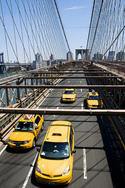Since the oil spike in the early seventies, enthusiasts for public transport have predicted that high prices for petrol would trigger a public transport revolution as people finally broke their “addiction” to the motor car and changed their travel mode to buses and trains.
Since then, price bubbles have increased public transport use, and lowered car miles traveled. But these changes have proved to be short-lived. More drive more. read more »






















